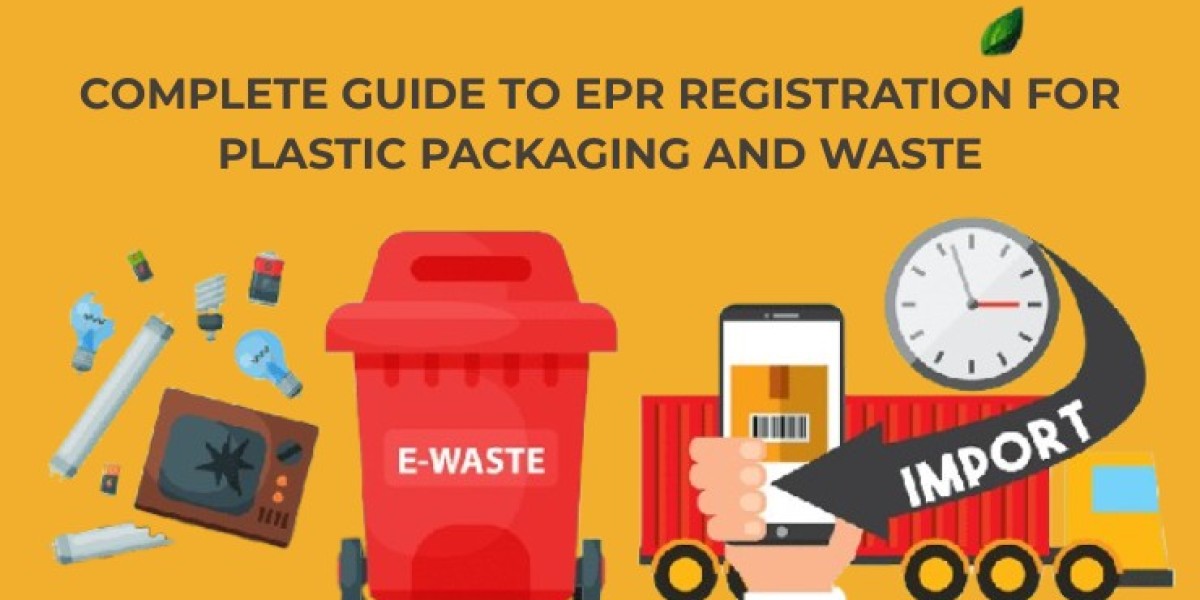Plastic waste has become one of the most pressing environmental challenges in India. With the exponential rise in the use of plastic products and packaging, it is crucial to adopt sustainable methods for its management. In line with this, the Indian government has implemented the Plastic Waste Management Rules, 2016, which mandate EPR Registration for Plastic Packaging and plastic waste for certain business categories.
This guide will walk you through the complete process of obtaining an EPR Certificate for Plastic Waste, including eligibility, documentation, benefits, and compliance requirements.
What is EPR Registration?
Extended Producer Responsibility (EPR) is an environmental policy approach under which producers are held accountable for the management of the disposal of products they produce once those products are considered waste. In India, it is mandatory for businesses dealing with plastic packaging to obtain an EPR Certificate Plastic Waste Management from the Central Pollution Control Board (CPCB).
Who Needs EPR Registration?
The following categories of businesses are required to obtain EPR Registration for Plastic Waste:
Producers of plastic products and packaging
Importers of plastic or packaged products
Brand Owners who sell goods under a registered trademark
Plastic Waste Processors or Recyclers
If you fall under any of these categories, you must obtain an EPR Certificate for Plastic Waste Management in India to comply with the law.
Types of Plastic Packaging Covered Under EPR
According to the CPCB, plastic packaging is classified into the following categories:
Category I – Rigid plastic packaging
Category II – Flexible plastic packaging of single or multilayer
Category III – Multi-layered plastic packaging (with at least one plastic and one non-plastic layer)
Category IV – Plastic sheets, carry bags, and packaging made of compostable plastic
EPR obligations differ based on the type of packaging, and compliance must be tailored accordingly.
Importance of EPR Compliance
Securing EPR Compliance for Plastic Waste Management offers several critical benefits:
Legal Compliance: Avoid penalties and legal action under the Environment Protection Act.
Sustainability: Reduce environmental pollution by enabling proper collection and recycling of plastic.
Brand Value: Improve brand reputation by showcasing environmental responsibility.
Market Access: Many retailers and buyers now prefer working with EPR-compliant suppliers.
Step-by-Step Process for EPR Registration
Follow these steps to successfully apply for EPR Registration for Plastic Packaging and waste:
Prepare Required Documents
You’ll need:
Company PAN and GST certificate
Certificate of Incorporation (CIN)
Authorized Signatory details
Details of the type and quantity of plastic used
Agreement with recyclers or PROs (Producer Responsibility Organizations)
Product and packaging details
Register on the CPCB Portal
Visit the CPCB EPR portal: eprplastic.cpcb.gov.in and create a business account.
Complete the Online Application
Enter business details, plastic categories, packaging data, and your waste collection & disposal plan. Upload supporting documents.
Submit and Pay Fees
Submit your application and pay the required fees based on the quantum of plastic waste generated.
Verification and Approval
CPCB will verify your submission. If approved, your business will receive the EPR Certificate for Plastic Waste.
Post-Registration Compliance
Once registered, you must:
Meet annual targets for plastic waste collection and recycling
File quarterly and annual returns on the CPCB portal
Maintain transparency with third-party recyclers or PROs
Renew your EPR certificate annually
Non-compliance may lead to suspension or cancellation of the certificate and possible legal consequences.
How Ewour Waste Management Can Help
At Ewour Waste Management, we specialize in helping businesses with:
EPR Registration for Plastic Waste
EPR Certificate Plastic Waste Management assistance
Customized compliance strategies
Partnering with verified recyclers and PROs
Documentation, reporting, and renewal support
Our experts ensure that your business achieves full EPR Compliance for Plastic Waste Management while focusing on sustainability.
Common Mistakes to Avoid
Submitting incomplete documentation
Choosing unauthorized recyclers
Missing compliance reports and deadlines
Failing to classify plastic packaging correctly
Avoiding these errors ensures smooth registration and long-term compliance.
Conclusion
Obtaining EPR Registration for Plastic Packaging is no longer optional for businesses operating in India. It is a critical legal and environmental requirement that supports sustainable waste management and promotes a cleaner ecosystem. With the help of experienced consultants like Ewour Waste Management, you can ensure timely and accurate registration and maintain your commitment to environmental responsibility.
If you're looking to secure your EPR Certificate for Plastic Waste or need end-to-end compliance support, reach out to Ewour today.
Contact Ewour Waste Management
📍 E-2 LL4 Sector 63, Noida, Uttar Pradesh, India – 201301
📧
📞 +91 958 282 7375 | 18008890452







